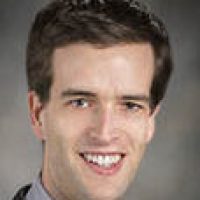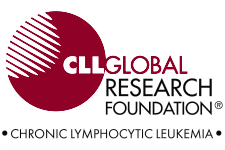Featured Expert:

Philip Thompson, MBBS, Associate Professor of Haematolog y at Peter MacCallum Cancer Centre
Dr. Philip Thompson shares how his career in CLL research has been profoundly influenced by Dr. Michael Keating and the support of the CLL Global Research Foundation. Dr. Thompson also discusses how his mentorship under Dr. Keating has impacted him, not just scientifically, but in the compassionate way he connects with patients.
Transcript
Dr. Philip Thompson:
I first met Michael Keating at ASH in, I think it was 2012. And I was this wide-eyed, young trainee hematologist that was just about ready to go into hematology practice. And I was trying to figure out what I was going to do with my career. And I had some mentors back home who had worked with Michael previously. And so they said, “Well, you got to come and meet Michael at ASH.” And I remember being terrified, absolutely terrified to meet this giant in the field. And then when I was introduced to him, he just has this extraordinary warmth about him that just instantaneously made me feel relaxed. And I then remember walking through from one session to another at ASH with him and it was like walking with a celebrity, every person that would pass by would be grabbing him for a discussion. And I was trying to convince him that I was worth employing as a fellow at MD Anderson with the support of CLL Global.
I must have done something right because eventually I did come to Houston in August of 2013 to do a fellowship in the leukemia department with my main focus being on CLL. And just that initial meeting with him and then being able to go to MD Anderson and work with him completely launched my career in this field. So I was able to go over there, get a number of important publications, learn how to think about CLL from clinics with Michael and with Bill Wierda. And then I stayed on in Houston, I developed my own research studies, and I had a number of grants with CLL Global that accelerated some really important work, particularly in the field of understanding measurable residual disease and the impact of that on the long-term outcomes for patients with CLL.
I developed a particular interest in trying to understand how could we cure patients? Were we curing patients with the existing therapies? If not, what did we need to do to be able to cure them? And none of that would’ve been possible without the generous support of the CLL Global Research Foundation, and without the mentorship of Michael Keating and Bill Weirder. So it’s hard truly to overstate my gratitude to those people in my career.
Well, I think that when I think about my time in Houston and I think about the impact that or the mentorship that I had on my career and how grateful I am for that. But I would say that beyond that, I just will be forever grateful for having Dr. Keating as a mentor, and as more than a mentor, as almost like a second father to me. He’s the warmest, most generous person that I’ve ever met. And I hope that some of his extraordinary manner with patients has rubbed off on me because I think it’s one thing to be a brilliant clinician and a brilliant scientist, but then to marry that with the ability to just walk into a room with a patient and instantaneously make them feel better before you’ve done anything to them. That’s unique.

